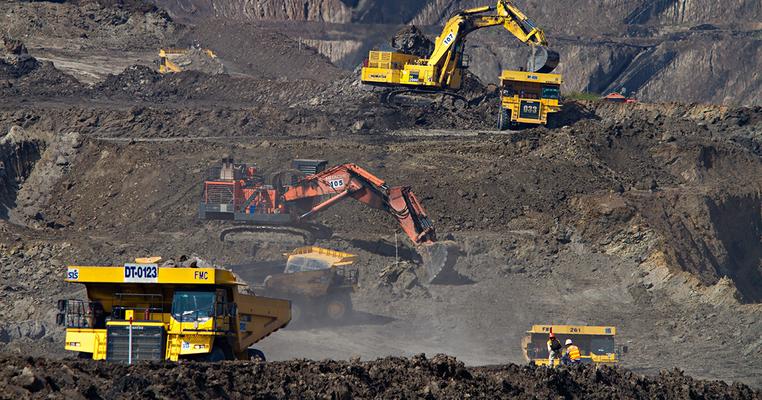
What a Just Transition From Coal and Gas to Clean Energy Looks Like
The necessary switch away from fossil fuels and to clean energy will define the climate for decades to come. Although clean energy has seen an incredible amount of growth, it still has a long, long way to go before it is the majority player in the global energy picture.
Luckily for the world, there are millions of hard-working businesspeople, government organizations, non-profits, watchdogs, and ordinary citizens out there making sure that this transition happens as quickly as possible. In the haste, however, we cannot forget those who could be left behind in the transition.
Frontline communities and fossil fuel workers are often left out of conversations around the emerging clean energy economy. That must change.
Frontline Communities
Frontline communities are often disproportionally affected by sources of pollution. This may be from highways, industrial processes, or high-emitting generation facilities that are situated near their communities. In the face of more polluted air and water, These families, facing more polluted air and water that most, also often have less ability to move away from that pollution due to socioeconomic factors.
This means the federal government must step in a put an end to the injustice. The already polluted areas can receive remediation, paid for by the polluter, by being declared a superfund site. This can start a process of healing, but it is a retroactive policy.
But by instating a financial penalty, where through taxation or regulation we can make the polluters pay, upfront, for the damage they are going to do to frontline communities, and necessarily, make that amount high enough that the polluters will choose a more environmental conscious business practice to avoid paying the tax/fine, we can move the dial.
Next, any fees or taxes collected from the polluters should be put right back into the frontline communities they are impacting. This is sometimes called a “tax and dividend” scheme, and there are many ways it can be administered. The dividend, a payment to the frontline community, could be used by individuals to help their economic situation. It could be used to a local clean up the company’s operations or to provide jobs and resources to the area. Or it could be used to build necessary clean infrastructure in the area.
Whatever it is, polluters need to pay for the damage they are doing to frontline communities and there are a number of ways that can happen.
Fossil Fuel Workers
Fossil fuel workers, like coal miners and gas rig workers, have often worked for generations in a given industry. They are hardworking individuals looking to make a better life for themselves and their families. And although the industry itself does incredible damage to the climate, the individuals who work in it will need a safety net as their careers fade out in favor of cleaner alternatives.
We can help the individuals in these areas through well/mine remediation, new industrial training, and education programs. Many of these jobs are in towns that are wholly dependent on the fossil fuel industry and without it, will have difficulty surviving.
Well and mine remediation are good for the environment and good for the workers. It allows the workers to remain in their home area, and work in the same place. This work involves fixing the mines and wells that had been used to extract fossil fuels. This can be paid for by the fossil fuel industry and federal/state governments alike as it brings environmental benefits and limits liability to the companies.
New training programs, whether it is for the clean power industry or a new career path, can also be used to mitigate the damages from a transition.
Wind turbine technician and solar installation are two fast-growing industries, and retraining the fossil fuel workers in these skills will benefit them and the economy as a whole enormously. However, this option is limited by the opportunities in an area. It may be very difficult for a West Virginia coal miner to retrain as a solar tech when solar has a very small footprint in West Virginia; and people don’t like to move from their homes, if they can avoid it.
For those that do not want to move, education programs like community colleges, trade schools, and traditional universities can offer relief. Education can allow the workers to find a new passion and assess the job market in their home area to find a good match. A more-educated populace is necessary to make the bright, sustainable future we want happen – and this policy would create better climate and economic outcomes.
The transition is happening already – every year more and more renewables come online, and more and more fossil fuels are retiring.
Frontline communities and fossil fuel workers must not be forgotten in this transition. We have the money and the policy; we just need the political will to make it happen.
Take Action Today
Emission reductions must be addressed at all levels, and every molecule that doesn’t go into the atmosphere is important. Unlike accounting tricks, all of the actions outlined above, if taken, can immediately begin reducing emissions and help frontline communities experiencing the worst impacts of the climate crisis.
We need immediate action to move quickly toward a zero-fossil fuel emissions economy in a globally just transition to clean energy. Our point of no return is nearly here. We have to get loud, now, and together demand the REAL policy changes that can save us from the worst degrees of warming.
Because our future is on the line – and this is our turning point on the climate crisis.
Join us and make yourself heard during 24 Hours of Reality: Let’s Get Real on October 29 by demanding real action from leaders who can make a meaningful difference for us all.

